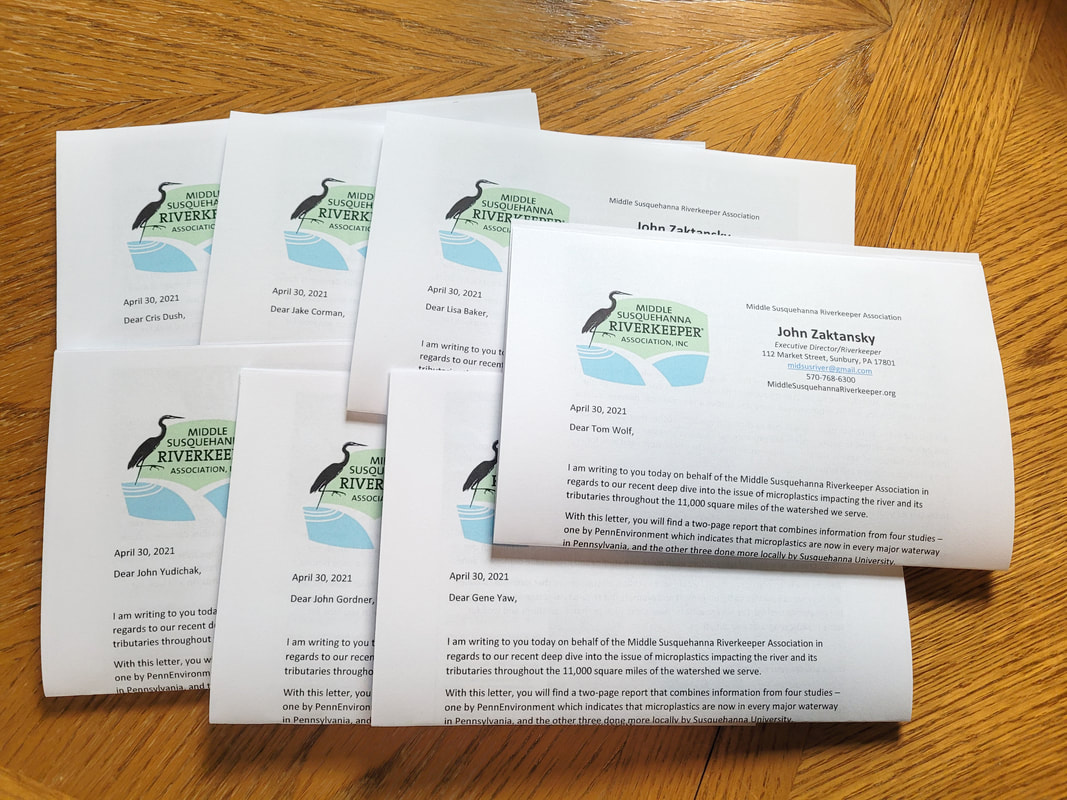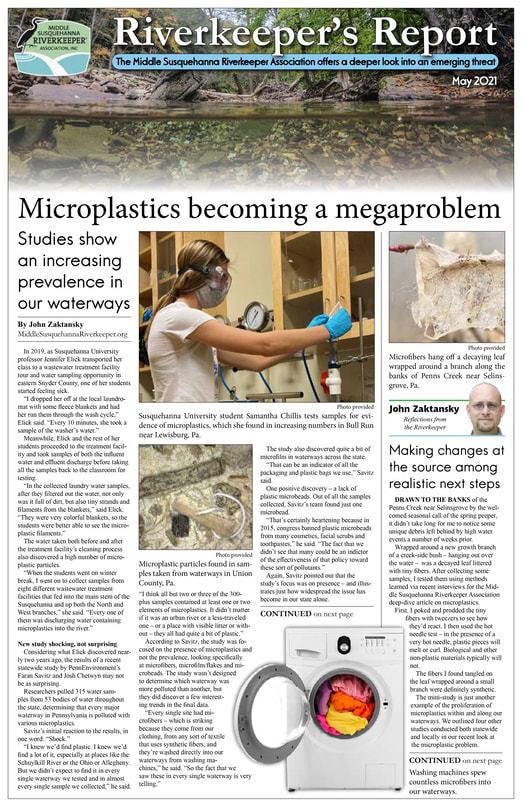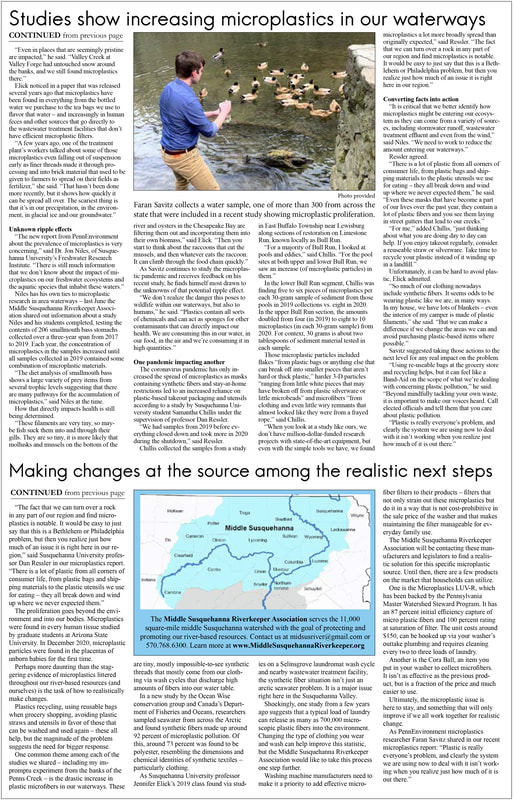|
On Friday, April 30, the Middle Susquehanna Riverkeeper Association mailed out nearly two dozen microplastic-focused letters and information packets to the governor, state senators and state representatives serving the 11,000 square-mile middle Susquehanna watershed.
It is apparent that individual efforts to recycle our plastic waste, stop utilizing single-use plastic bags and similar efforts are, alone, not enough. There is no magic wand to wave that would zap away the plastic waste without hurting our greater economy and the families that depend on jobs in that industry.
Finding a realistic solution is challenging, but one we think may have some merit focuses on the massive number of microplastic synthetic fibers that are released into our greater water system via clothes washing machines. There are a few products available where individual families can filter out at least some of those microfibers, however, these solutions can be costly and inefficient. We strongly advocate efforts locally, state-wide and even nationally where washing machine manufacturers install effective microfiber filters on all new machines – and do so in a way that is not cost-prohibitive for everyday families. It is estimated in some reports that upwards of 90 percent of our waterway microplastic pollution comes from the microfibers that washing machines spew out by the thousands with every rinse cycle. There has to be some way to cut this number at the source, and we are seeking to partner with you to find those solutions and take action. As a secondary line of defense, we also advocate a real look into adding some sort of microfiber filter to municipal water treatment facilities before these tiny pollutants are carried away by the effluent – something that is happening ways too often as indicated by one of the studies we reference. Many water treatment facilities in our greater watershed alone are considering upgrades in the coming years, and this would be the best time to institute a change at that level. We look forward to speaking with you concerning these suggestions to see what is realistic and how we can take steps toward curbing the microplastic pandemic that is flowing through our river, creeks, streams and lakes before even more dire studies and irreversible damage is done. Beyond the microplastic situation, I would love to chat with you about other river-based issues and how we can partner to better protect and promote our river-based resources throughout the greater watershed. Let me know if you have some time to chat, brainstorm and look for some realistic programs and initiatives. Thank you for your time and consideration. Sincerely, John Zaktansky, Executive Director Middle Susquehanna Riverkeeper Association
0 Comments
Leave a Reply. |
AuthorsRiverkeeper John Zaktansky is an award-winning journalist and avid promoter of the outdoors who loves camping, kayaking, fishing and hunting with the family. Archives
April 2024
Topics |
||||||||||||||



 RSS Feed
RSS Feed